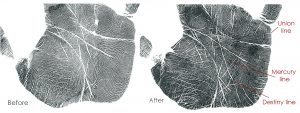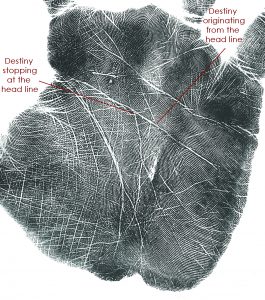Bill was a born charmer. As a boy he was a mischievous rascal but possessed such natural charisma and magnetism that people were drawn to him. He was always extremely popular and managed to sail through his early life with little effort, struggle or purpose. With the financial support of a doting aunt, he was able to spend his late teens and early twenties flitting from college to college and from girl to girl. His great passion was his freedom and his only real pursuit was partying and having fun. But by the time he was 27, the party was drawing to a close; his wealthy aunt threatened to cut him off if he didn’t find a career, and his long-term girlfriend was pressuring him to settle down.
Feeling cornered and not knowing what else to do, Bill married his girlfriend and took a boring job in retail sales. But just a couple of days into his honeymoon, he was overwhelmed with feelings of being trapped and suffocated by both his marriage and his work. He came to see me in a panic.
“Guylaine, the walls are closing in on me! I am seriously thinking of quitting my job, leaving my wife and just skipping town.”
“But Bill, you’ve only been married for two weeks!” I said. “Take a deep breath, calm down and let’s see what your hands tell us.”
Bill’s first set of handprints were very “raw”, revealing a shallow and immature life. His mounts—the pads of flesh below the fingers that reflect our spiritual and emotional development—were extremely rudimentary. And, with the exception of the heart, head and life lines, his handprints were practically devoid of any other line or sign. These were strong indicators that he led a reckless lifestyle, had failed to develop any of his natural gifts and talents, hadn’t grown as a person and was lacking any sense of spiritual awareness.
When Bill was forced to give up his distracting pastimes and come face to face with who he truly was, he didn’t like what he saw—he was gripped with fear and wanted to run.
As the texture of Bill’s palms was quite coarse, it was an indication that he was ready to explore deeper aspects of himself—he just needed some encouragement.
“Listen Bill,” I said. “You have free will, so you can choose to run away from your wife and your life—but no matter how far you run, you can’t outrun who you are . . . and you could very well end up running forever. If you really want to change your life, you have to change yourself.”
“But I don’t think I can change, Guylaine,” Bill said. “I’ve always been like this—irresponsible. I am who I am.”
Bill and I had a long talk about how palmistry serves as a bridge between the wisdom found in the Vedic philosophy of ancient India and the emerging science of neuroplasticity, both of which deal with changing our lives. The Vedas teach us how to change our thoughts and perceptions by pursuing personal and spiritual enlightenment; neuroplasticity is proving that no matter how old we are, our brains are plastic (changeable), and that by changing our thoughts we can actually physically rewire the way our brain functions. In other words, we are capable of changing our entire outlook on life. Palmistry illustrates the effectiveness of both these techniques by showing us what we need to change and by tracking those changes—as we change our thoughts and attitudes, the lines and signs in our palms change as well, allowing us to monitor and direct our progress.
I encouraged Bill to begin a program of mantra, meditation and mindfulness, and to recite positive affirmations every morning. He slowly began to distance himself from the pursuit of emotional pleasure by setting and committing to goals of lasting value and substance—such as being guided by selfless love and devoting himself to loyalty, kindness, family and faith.
In his “after” prints, we can see that Bill grew many positive lines and signs in his hand, including a deep union line, reflecting his love and devotion to his bride. Bill and his wife went on to open their own successful business and have several children. They recently celebrated a very happy 25th wedding anniversary.
Do you need a change in your life? Give us a call at 866.428.3799 or click here to book a consultation. We are here to help!





